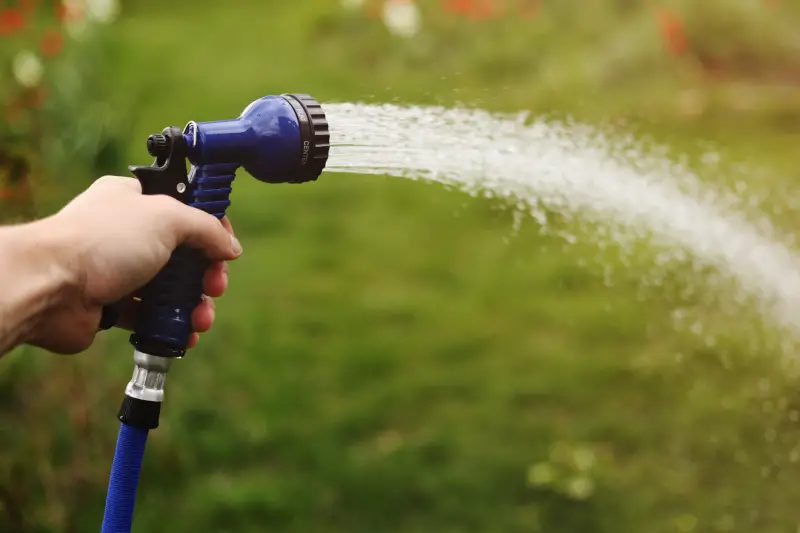In everyday situations, playful pranks and harmless actions can sometimes blur the lines between fun and potential harm. One such scenario is spraying someone with water. While it may seem like a harmless act, the question arises: Is spraying someone with water considered assault? The answer isn’t a straightforward “yes” or “no.” The definition and legal implications of assault vary from state to state. Additionally, the intent behind an action plays a crucial role in determining whether you are likely to face arrest by the police for spraying someone with a hose or not. In this blog post, we will explore the different perspectives on this matter and shed light on the legal nuances surrounding water spraying incidents.
Every State Defines “Assault” Differently
One of the complexities surrounding the classification of spraying someone with water as assault lies in the fact that each state has its own definition of assault. While some states have broad and encompassing definitions, others have more specific criteria that need to be met for an act to be considered assault. Consequently, what might be deemed assault in one state could be seen as a different offense or even perfectly legal in another.
For example, in State A, assault may be defined as intentionally causing physical injury or placing someone in reasonable fear of immediate harm. In this context, if spraying someone with water leads to such apprehension or harm, it could be considered assault under State A’s definition. However, in State B, assault may require proof of an additional element, such as the use of force or a weapon. Consequently, merely spraying someone with water might not meet the criteria for assault in State B.
These varying definitions highlight the need to consider the specific jurisdiction when determining the legality of spraying someone with water. It is important to consult local laws and seek legal advice for accurate information regarding your state’s stance on this matter. it is also worth noting that in some states, spraying someone with a hose could represent the charge of battery instead of assault.
Is Spraying Someone with a Hose a Felony or a Misdemeanor?
No matter how state law defines assault, spraying someone with a hose is at worst a minor offense that carries a maximum fine of a few thousand dollars. However, prosecutors also know that a reasonable person is unlikely to convict someone of spraying another person with a water hose unless there is more to the story. So while it is possible this could lead to misdemeanor charges, arrests like this are hardly common.
It is worth remembering that prosecutors have a lot of cases on their plate. It is unlikely that, even in situations where the elements of assault are met, that many prosecutors are going to spend the resources needed to send you to county jail for spraying someone with a hose. Still, you should always speak with a criminal defense attorney if you are accused of any type of criminal offense.
See Also: Can You Get a Ticket Without Being Pulled Over?
The Role of Intent in Assault Charges
Assault is generally regarded as a crime of intent, meaning that the perpetrator must have intended to cause harm or instill fear in their actions. Accidental actions, including accidentally spraying someone with a water hose, do not typically meet the necessary intent requirement to be considered assault.
To prove assault, it is often necessary to establish that the person engaging in the behavior had a deliberate and conscious intent to harm or threaten. In the case of water spraying, if the act was done playfully or without any intention to harm or create fear, it is unlikely to be legally categorized as assault.
However, intent can be subjective and challenging to prove definitively. Courts and legal authorities may consider factors such as prior conflicts, verbal threats, or the overall context of the situation to determine the presence of intent. This evaluation ensures that accidental or innocent actions are not unjustly labeled as assault.
It is worth noting that even if an act does not meet the criteria for assault, it doesn’t necessarily absolve individuals of potential civil liabilities. Unintentional harm caused by actions like water spraying could still result in civil suits, seeking compensation for damages or injuries caused.
Possible Defenses in Hose Spraying Assault Cases
Even if you are charged in these cases, you have the right to mount a legal defense. Possible defenses in cases involving a crime of assault for spraying someone with water include the lack of intent and self-defense. As mentioned earlier, assault requires the presence of intent to cause harm or instill fear. If the defendant can demonstrate that their actions were accidental or lacking the necessary intent, it can serve as a valid defense against assault charges. For instance, if the water spraying occurred unintentionally due to a slip or equipment malfunction, it may be argued that there was no intent to harm or threaten.
Furthermore, self-defense could be invoked if the defendant reasonably believed that they were in imminent danger and spraying water was necessary to protect themselves or others from harm. It is important to consult with a legal professional to determine the most appropriate defense strategy based on the specific circumstances of the case and the laws in the relevant jurisdiction.
Conclusion
Determining whether spraying someone with water qualifies as assault depends on various factors, including the jurisdiction and the intent behind the action. With each state having its own definition of assault, what may constitute assault in one state may not be considered as such in another. Furthermore, intent to cause harm or fear is crucial when classifying an act as assault. Accidental water spraying or actions lacking the intent to harm are less likely to be legally regarded as assault. Understanding the specific laws and seeking legal advice is essential to accurately assess the legal implications of water spraying incidents in a given jurisdiction.
While it is true that arrests in these situations are uncommon, it is possible that you could face simple assault charges for spraying someone with a hose under the right circumstances. As a defendant in any criminal case, it is your right to hire an attorney and get the full story in front of a jury. Always speak with a criminal defense lawyer in your area if you believe you are likely to face arrest, prosecution or conviction for assault after spraying someone with a water hose.



